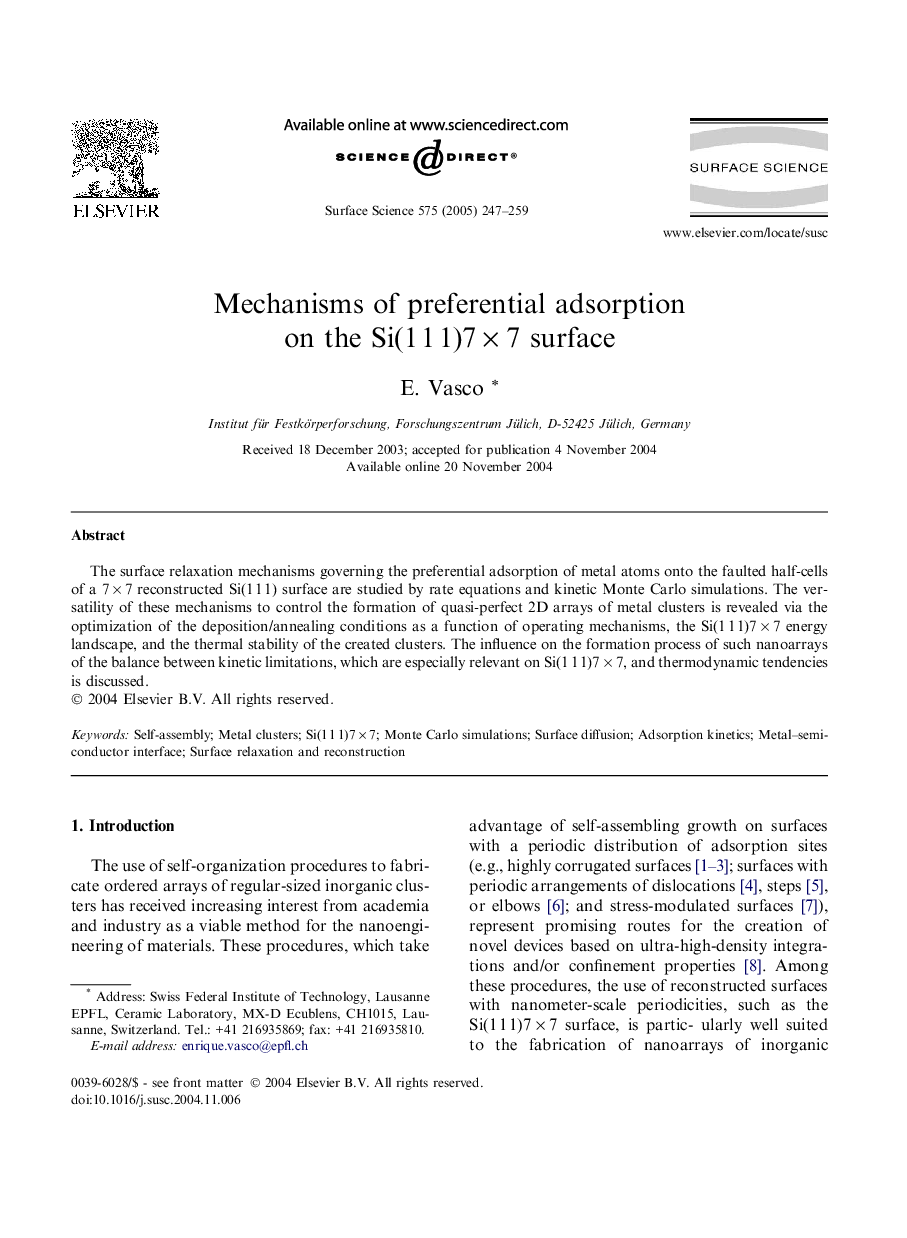| Article ID | Journal | Published Year | Pages | File Type |
|---|---|---|---|---|
| 9595316 | Surface Science | 2005 | 13 Pages |
Abstract
The surface relaxation mechanisms governing the preferential adsorption of metal atoms onto the faulted half-cells of a 7Â ÃÂ 7 reconstructed Si(1Â 1Â 1) surface are studied by rate equations and kinetic Monte Carlo simulations. The versatility of these mechanisms to control the formation of quasi-perfect 2D arrays of metal clusters is revealed via the optimization of the deposition/annealing conditions as a function of operating mechanisms, the Si(1Â 1Â 1)7Â ÃÂ 7 energy landscape, and the thermal stability of the created clusters. The influence on the formation process of such nanoarrays of the balance between kinetic limitations, which are especially relevant on Si(1Â 1Â 1)7Â ÃÂ 7, and thermodynamic tendencies is discussed.
Keywords
Related Topics
Physical Sciences and Engineering
Chemistry
Physical and Theoretical Chemistry
Authors
E. Vasco,
